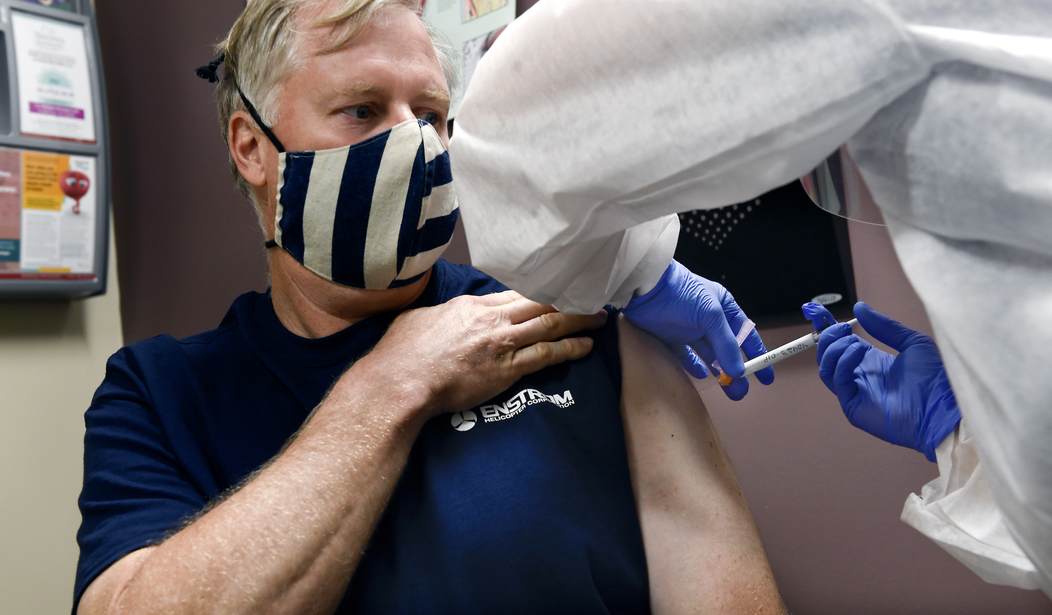The Center for Disease Control (CDC) on Saturday issued new guidance for the Wuhan coronavirus vaccines after multiple reports indicated Americans had allergic reactions after receiving the vaccination.
Those who have severe allergic reactions can receive the coronavirus vaccine but should consult their doctor about the risks involved. The primary concern is for those who suffer from anaphylaxis, which impacts their breathing and can be considered life-threatening.
“People that do report those types of anaphylactic reactions to other vaccines or injectables — they can still get the vaccine, but they should be counseled about the unknown risks of developing a severe allergic reaction and balance these risks against the benefit of vaccination,” Sarah Mbaeyi, a medical officer with the CDC’s National Center for Immunization and Respiratory Diseases, told PBS News Hour.
Those with other allergies, according to the CDC, should not be concerned about getting the coronavirus vaccine.
"CDC recommends that people with a history of severe allergic reactions not related to vaccines or injectable medications—such as allergies to food, pet, venom, environmental, or latex—may still get vaccinated," the CDC's website states. "People with a history of allergies to oral medications or a family history of severe allergic reactions, or who might have an milder allergy to vaccines (no anaphylaxis)—may also still get vaccinated."
Recommended
Those who suffer from other allergies should consult with their doctor about whether or not the Wuhan coronavirus vaccine is right for them.
Amanda Cohn, a CDC official working on the coronavirus planning unit, said those who had allergic reactions to other injections should refrain from receiving the COVID vaccine. That is because the vaccine includes a lipid nanoparticle called polyethylene glycol (PEG). It is a component in other injectable medicines. If a person has reacted to other injections, it is highly probably that it is because of PEG.
"That is partially the reason for the extra precautions for persons who have (had reactions) to other injectables," Cohn told PBS. "We are being abundantly cautious about this question related to allergic reactions. We don’t want people who have mild allergic reactions to be concerned about getting vaccinated."
If a person receives the first dose of the coronavirus vaccine and has an allergic reaction, they are advised against receiving the second dose.
In order to protect the public, the CDC has instructed vaccinators to monitor those who receive the vaccine for the first 15 minutes after receiving the immunization. Those with a history of allergic reactions must be monitored for 30 minutes after vaccination.
Medical professionals who have patients experiencing a serious allergic reaction will submit their findings to the Vaccine Adverse Reporting System (VARS), a nationwide forum for health care professionals, vaccine manufacturers and the public. Americans have the ability to research adverse reactions commonly associated with a vaccine, whether they are unexpected or appear to be quite common.
According to Fox News, only six allergic reactions have been discovered despite roughly 272,000 people receiving the vaccine. Each of the six reactions took place within a 30-minute window.
The new guidelines vary from those published by British regulators. Across the pond, medical professionals are telling people with food or medicine allergies not to receive the vaccine.

























Join the conversation as a VIP Member